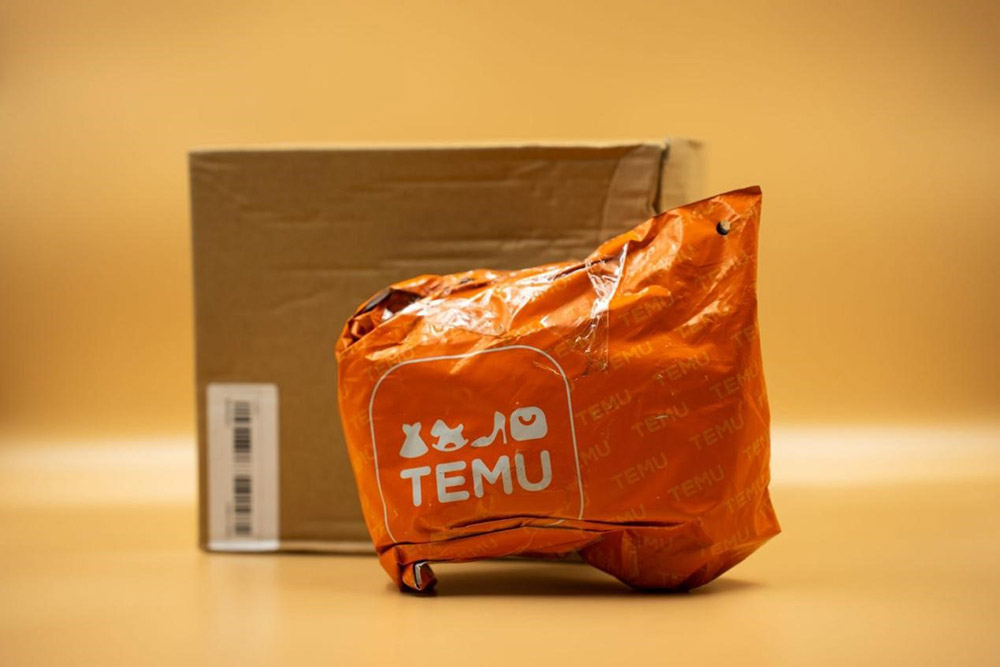
中國(guó)創(chuàng)立的電商平臺(tái)Temu和希音表示,,計(jì)劃自本周起,,上調(diào)面向美國(guó)消費(fèi)者的商品售價(jià)。這是唐納德·特朗普(Donald Trump)意圖通過對(duì)中國(guó)輸美商品加征高額關(guān)稅來矯正中美這兩大全球經(jīng)濟(jì)體間貿(mào)易失衡狀況所引發(fā)的連鎖反應(yīng),。
中國(guó)電子商務(wù)公司拼多多(PDD Holdings)旗下的跨境電商平臺(tái)Temu和總部位于新加坡的快時(shí)尚跨境電商希音,,在內(nèi)容近乎一致的獨(dú)立聲明中均指出,“受近期全球貿(mào)易規(guī)則與關(guān)稅變動(dòng)影響”,,其運(yùn)營(yíng)成本有所上升,。
兩家公司均宣稱,自4月25日起將實(shí)施“價(jià)格調(diào)整”,,但均未披露價(jià)格漲幅的具體細(xì)節(jié),。目前尚不清楚這兩家競(jìng)爭(zhēng)對(duì)手為何在其購(gòu)物網(wǎng)站上發(fā)布了近乎相同的聲明。
自進(jìn)軍美國(guó)市場(chǎng)以來,,希音和Temu憑借超低價(jià)格商品以及鋪天蓋地的數(shù)字廣告或網(wǎng)紅營(yíng)銷攻勢(shì),,給西方零售商帶來了巨大的競(jìng)爭(zhēng)壓力。
特朗普政府對(duì)中國(guó)生產(chǎn)的大多數(shù)產(chǎn)品加征145%的關(guān)稅,,并決定終止允許價(jià)值低于800美元的商品免繳關(guān)稅進(jìn)入美國(guó)的海關(guān)豁免政策,,此舉對(duì)上述兩個(gè)平臺(tái)的商業(yè)模式造成了沖擊。
電商公司一直是這項(xiàng)廣泛應(yīng)用的豁免政策的最大受益者,。特朗普本月簽署了一項(xiàng)行政命令,,宣布自5月2日起取消針對(duì)來自中國(guó)大陸和中國(guó)香港商品的“小額豁免條款”,屆時(shí)這些商品將被加征145%的進(jìn)口稅,。
依據(jù)這項(xiàng)即將廢止的條款,,每天有多達(dá)400萬個(gè)低價(jià)值包裹運(yùn)抵美國(guó),其中大部分來自中國(guó),。
美國(guó)政界人士,、執(zhí)法機(jī)構(gòu)和商業(yè)團(tuán)體曾游說,力主取消這一存續(xù)已久的豁免政策,,稱其為貿(mào)易漏洞,,使價(jià)格低廉的中國(guó)商品獲得了不公平的競(jìng)爭(zhēng)優(yōu)勢(shì)。
希音聚焦年輕女性消費(fèi)群體,,主要通過與社交媒體網(wǎng)紅合作,,銷售價(jià)格低廉的服裝、化妝品和配飾,。而Temu則通過在線廣告進(jìn)行商品推廣,,銷售的商品種類更為多元,包括家居用品,、趣味禮品和小型電子產(chǎn)品,。
根據(jù)數(shù)據(jù)分析提供商Sensor Tower的數(shù)據(jù),,去年這兩家公司位列社交媒體平臺(tái)廣告支出最高的企業(yè)之列,然而在最近幾周,,它們均縮減了廣告開支,。這對(duì)于像臉書(Facebook)、Instagram,、Snap,、X平臺(tái)和TikTok等依賴廣告收入的平臺(tái)而言,或許并非利好消息,。
去年11月,,美國(guó)電商巨頭亞馬遜(Amazon)推出了一個(gè)低價(jià)線上商城,主要售賣價(jià)格低于20美元的電子產(chǎn)品,、服裝和其他商品,。上周三,該商城展示的大量電子產(chǎn)品,、服裝和其他商品,,與希音和Temu平臺(tái)上常見的商品品類極為相似。
在針對(duì)即將漲價(jià)事宜向客戶發(fā)布的通知里,,這兩家公司均鼓勵(lì)客戶在接下來的數(shù)日內(nèi)持續(xù)進(jìn)行購(gòu)物,。
Temu的聲明中寫道:“我們已備足了庫存,全力保障在此期間您的訂單能夠順利送達(dá),。我們正不遺余力地維持低價(jià),,將漲價(jià)對(duì)您造成的影響降至最低?!保ㄘ?cái)富中文網(wǎng))
譯者:中慧言-王芳
中國(guó)創(chuàng)立的電商平臺(tái)Temu和希音表示,,計(jì)劃自本周起,上調(diào)面向美國(guó)消費(fèi)者的商品售價(jià),。這是唐納德·特朗普(Donald Trump)意圖通過對(duì)中國(guó)輸美商品加征高額關(guān)稅來矯正中美這兩大全球經(jīng)濟(jì)體間貿(mào)易失衡狀況所引發(fā)的連鎖反應(yīng)。
中國(guó)電子商務(wù)公司拼多多(PDD Holdings)旗下的跨境電商平臺(tái)Temu和總部位于新加坡的快時(shí)尚跨境電商希音,,在內(nèi)容近乎一致的獨(dú)立聲明中均指出,,“受近期全球貿(mào)易規(guī)則與關(guān)稅變動(dòng)影響”,其運(yùn)營(yíng)成本有所上升,。
兩家公司均宣稱,,自4月25日起將實(shí)施“價(jià)格調(diào)整”,但均未披露價(jià)格漲幅的具體細(xì)節(jié),。目前尚不清楚這兩家競(jìng)爭(zhēng)對(duì)手為何在其購(gòu)物網(wǎng)站上發(fā)布了近乎相同的聲明,。
自進(jìn)軍美國(guó)市場(chǎng)以來,希音和Temu憑借超低價(jià)格商品以及鋪天蓋地的數(shù)字廣告或網(wǎng)紅營(yíng)銷攻勢(shì),,給西方零售商帶來了巨大的競(jìng)爭(zhēng)壓力,。
特朗普政府對(duì)中國(guó)生產(chǎn)的大多數(shù)產(chǎn)品加征145%的關(guān)稅,,并決定終止允許價(jià)值低于800美元的商品免繳關(guān)稅進(jìn)入美國(guó)的海關(guān)豁免政策,此舉對(duì)上述兩個(gè)平臺(tái)的商業(yè)模式造成了沖擊,。
電商公司一直是這項(xiàng)廣泛應(yīng)用的豁免政策的最大受益者,。特朗普本月簽署了一項(xiàng)行政命令,宣布自5月2日起取消針對(duì)來自中國(guó)大陸和中國(guó)香港商品的“小額豁免條款”,,屆時(shí)這些商品將被加征145%的進(jìn)口稅,。
依據(jù)這項(xiàng)即將廢止的條款,每天有多達(dá)400萬個(gè)低價(jià)值包裹運(yùn)抵美國(guó),,其中大部分來自中國(guó),。
美國(guó)政界人士、執(zhí)法機(jī)構(gòu)和商業(yè)團(tuán)體曾游說,,力主取消這一存續(xù)已久的豁免政策,,稱其為貿(mào)易漏洞,使價(jià)格低廉的中國(guó)商品獲得了不公平的競(jìng)爭(zhēng)優(yōu)勢(shì),。
希音聚焦年輕女性消費(fèi)群體,,主要通過與社交媒體網(wǎng)紅合作,銷售價(jià)格低廉的服裝,、化妝品和配飾,。而Temu則通過在線廣告進(jìn)行商品推廣,銷售的商品種類更為多元,,包括家居用品,、趣味禮品和小型電子產(chǎn)品。
根據(jù)數(shù)據(jù)分析提供商Sensor Tower的數(shù)據(jù),,去年這兩家公司位列社交媒體平臺(tái)廣告支出最高的企業(yè)之列,,然而在最近幾周,它們均縮減了廣告開支,。這對(duì)于像臉書(Facebook),、Instagram、Snap,、X平臺(tái)和TikTok等依賴廣告收入的平臺(tái)而言,,或許并非利好消息。
去年11月,,美國(guó)電商巨頭亞馬遜(Amazon)推出了一個(gè)低價(jià)線上商城,,主要售賣價(jià)格低于20美元的電子產(chǎn)品、服裝和其他商品,。上周三,,該商城展示的大量電子產(chǎn)品、服裝和其他商品,與希音和Temu平臺(tái)上常見的商品品類極為相似,。
在針對(duì)即將漲價(jià)事宜向客戶發(fā)布的通知里,,這兩家公司均鼓勵(lì)客戶在接下來的數(shù)日內(nèi)持續(xù)進(jìn)行購(gòu)物。
Temu的聲明中寫道:“我們已備足了庫存,,全力保障在此期間您的訂單能夠順利送達(dá),。我們正不遺余力地維持低價(jià),將漲價(jià)對(duì)您造成的影響降至最低,?!保ㄘ?cái)富中文網(wǎng))
譯者:中慧言-王芳
China-founded e-commerce sites Temu and Shein say they plan to raise prices for U.S. customers starting next week, a ripple effect from President Donald Trump’s attempts to correct the trade imbalance between the world’s two largest economies by imposing a sky-high tariff on goods shipped from China.
Temu, which is owned by the Chinese e-commerce company PDD Holdings, and Shein, which is now based in Singapore, said in separate but nearly identical notices that their operating expenses have gone up “due to recent changes in global trade rules and tariffs.”
Both companies said they would be making “price adjustments” starting April 25, although neither provided details about the size of the increases. It was unclear why the two rivals posted almostidentical statements on their shopping sites.
Since launching in the United States, Shein and Temu have given Western retailers a run for their money by offering products at ultra-low prices, coupled with avalanches of digital or influencer advertising.
The 145% tariff Trump slapped on most products made in China, coupled with his decision to end a customs exemption that allows goods worth less than $800 to come into the U.S. duty-free, has dented the business models of the two platforms.
E-commerce companies have been the biggest users of the widely used exemption. Trump signed an executive order this month to eliminate the “de minimis provision” for goods from China and Hong Kong starting May 2, when they will be subject to the 145% import tax.
As many as 4 million low-value parcels — most of them originating in China — arrive in the U.S. every day under the soon-to-be canceled provision.
U.S. politicians, law enforcement agencies and business groups lobbied to remove the long-standing exemption, describing it as a trade loophole that gave inexpensive Chinese goods an advantage and served as a portal for illicit drugs and counterfeits to enter the country.
Shein sells inexpensive clothes, cosmetics and accessories, primarily targeting young women through partnerships with social media influencers. Temu, which promoted its goods through online ads, sells a wider array of products, including household items, humorous gifts and small electronics.
Last year the companies were among the largest advertising spenders on social media platforms, but they’ve both slashed that spending in recent weeks, according to data analytics provider Sensor Tower. That could be bad news for the platforms such as Facebook, Instagram, Snap, X and TikTok that rely on advertising.
In November, American e-commerce giant Amazon launched a low-cost online storefront featuring electronics, apparel and other products priced at under $20. Many of the electronics, apparel and other products on the storefront Wednesday resembled the types of items typically found on Shein and Temu.
In their customer notices about the pending price increases, the companies encouraged customers to keep shopping in the days ahead.
“We’ve stocked up and stand ready to make sure your orders arrive smoothly during this time,” Temu’s statement said. “Were doing everything we can to keep prices low and minimize the impact on you.”






